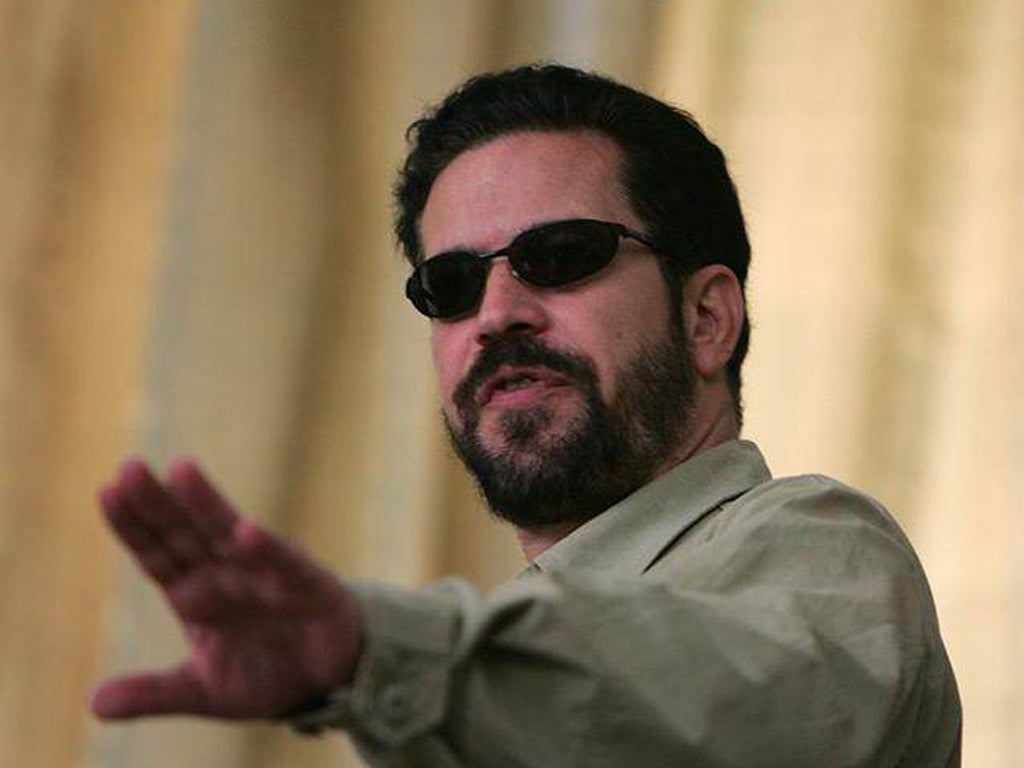The dark truth behind the man who claimed he had Bin Laden in his sights
He said he saved many Afghan lives, but to his victims, Jack Idema was a brutal psychopath

Your support helps us to tell the story
From reproductive rights to climate change to Big Tech, The Independent is on the ground when the story is developing. Whether it's investigating the financials of Elon Musk's pro-Trump PAC or producing our latest documentary, 'The A Word', which shines a light on the American women fighting for reproductive rights, we know how important it is to parse out the facts from the messaging.
At such a critical moment in US history, we need reporters on the ground. Your donation allows us to keep sending journalists to speak to both sides of the story.
The Independent is trusted by Americans across the entire political spectrum. And unlike many other quality news outlets, we choose not to lock Americans out of our reporting and analysis with paywalls. We believe quality journalism should be available to everyone, paid for by those who can afford it.
Your support makes all the difference.Jack Idema, a self-styled terrorist-hunter who once claimed he was close to tracking down Osama bin Laden, has died in Mexico, aged 55.
Variously described as a conman, a fantasist, a sociopath, and a super-patriot, Jonathan Keith "Jack" Idema died alone on Saturday of complications relating to Aids, a police official in the Mexican state of Quintana Roo said. The authorities were slow to announce his death as they had trouble identifying the body. No one came to collect his remains, and it fell to the US State Department to confirm his death.
Idema appeared in Kabul at the end of 2001 after the Northern Alliance and US forces swept the Taliban from power. He claimed to have arrived with the Northern Alliance, and said he had saved many Afghan lives with his special forces' medical training. But Northern Alliance commanders said they had no idea who he was.
While he was indeed a former soldier, his life until his arrival in Kabul was typified by bizarre and sometimes criminal misadventure.
Born and raised in Poughkeepsie, New York, Idema joined the army after leaving school in 1975 and worked as Special Forces' radio operator until 1978, military records show. After leaving the military, he set up a paintball business in North Carolina. But when the business foundered in the 1980s, he was convicted of fraud and spent three years in prison. After his release, he was off the radar for some time, before resurfacing with some bizarre lawsuits, including trying to sue Steven Spielberg's Dreamworks for allegedly stealing his life story for the 1997 spy thriller The Peacemaker, starring George Clooney. The case was thrown out.
After pitching up in Kabul, he boasted that he was close to catching the al-Qa'ida leader, Osama bin Laden, and would hold court in hotel bars spinning tales of his exploits. He became known locally as Tora Bora Jack, and Kabul's first cocktail bar named a drink after him. After a few Heinekens, he would tell listeners he was the leader of a group called Task Force Sabre 7, which reported directly to the office of the US Secretary of State.
Idema's endless self-promotion appeared to pay off in the anarchic atmosphere of post-Taliban Afghanistan, and he featured in a number of articles and television programes. He ever co-authored a book, Task Force Dagger.
But behind all the bravado was a brutal truth. In 2004, police raided his house in Kabul and found eight prisoners there, some of them reportedly hanging from the ceiling. During Idema's trial, in Kabul, his detainees told the court they had been kept in shackles and tortured. Idema denied this and insisted he had operated with the knowledge of the Afghan and US militaries, but the court found him guilty and sentenced him to 10 years in Kabul's harsh Pul-e-Charkhi jail.
He was eventually pardoned by President Hamid Karzai in 2007, and after his release he made his way to Mexico, where he again reinvented himself, chartering a boat for tourists.
Few came forward to mourn him yesterday. A former girlfriend, Penny Alesi, who was in touch with him until days before his death, told the Fayetteville Observer: "He had charisma. He was funny. He was smart and well read – but toxic. Truthfully, he was a sociopath."
Join our commenting forum
Join thought-provoking conversations, follow other Independent readers and see their replies
Comments